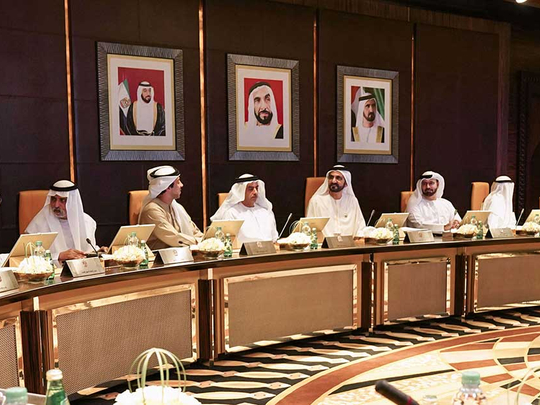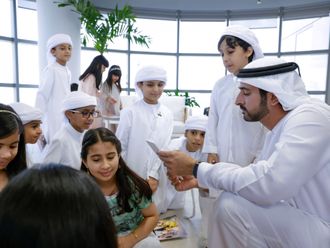
Abu Dhabi- A national higher education strategy has been approved by the Cabinet with an aim of ranking UAE universities among the world’s top 100 universities.
The strategy, approved during a Cabinet meeting on Sunday chaired by His Highness Shaikh Mohammad Bin Rashid Al Maktoum, Vice-President and Prime Minister of the UAE and Ruler of Dubai, aims to nurture an outstanding generation equipped with the highest education and ethical and positive values.
The strategy also aims to prepare Emirati university students for a rapidly changing world by equipping them with the skills and knowledge that enable them to compete in global markets, meet the ever-changing requirements and ensure their career future.
“There were only 40 university students 46 years ago. Today, we have 77 government and private universities in the UAE. The competence of universities and their outputs determine the proficiency of our economy and the future of development in our country,” the Vice-President said.
He added: “We place high confidence in our federal universities, and there is a new phase ahead towards development and keeping pace with our future aspirations.”
The education strategy, which is in line with the UAE Vision 2021 and the UAE Centennial Plan 2071, will develop high quality education in professional and academic disciplines to achieve outputs that contribute to advance the knowledge-based economy.
It is based on four main themes for the development of future generations. They include ensuring the quality of education provided by UAE universities, adaptation between curriculum and global trends and approaches. The third theme is innovation to ensure a creative learning environment that is able to compete. The final theme is proficiency to ensure the competency of education programmes and teaching structures.
The first theme about quality focuses on the development of national high-class education standards to ensure the quality of the learning process at Emirati universities and further achieve the goals and aspirations of the UAE to create a highly educated generation based on the highest international standards.
The quality theme involves drawing up plans to develop teaching faculties at universities by qualifying Emiratis to join federal universities, and engage chief executives at the private and public sectors to give lectures at universities. It also aims to attract an elite group of local and global experts and academia to teach and train new generations.
The second theme of adaptation provides for building institutional cooperation between universities and companies in the job market. This includes setting up a special council to coordinate between the local universities and private companies.
The third strategy aims to develop creativity and innovation by developing an environment conducive to scientific research that attracts best researchers.
The fourth theme involves mechanisms to improve the proficiency of education on all levels, including financial efficiency by setting operational cost-cutting plans.
The strategy is expected to reflect positively on the UAE economy and create new job opportunities for Emiratis on the short and long run.
Meanwhile, the Cabinet reviewed the annual statistical report on the joint GCC economic action, approved the issuance of a law on the integrated waste management, and other resolutions.
Lieutenant-General Shaikh Saif Bin Zayed Al Nahyan, Deputy Prime Minister and Minister of Interior, and Shaikh Mansour Bin Zayed Al Nahyan, Deputy Prime Minister and Minister of Presidential Affairs.
The Cabinet discussed the UAE’s bid for Sharjah to become the main headquarter of the Arab Children’s Parliament. It approved a number of agreements and conventions with friendly countries.












